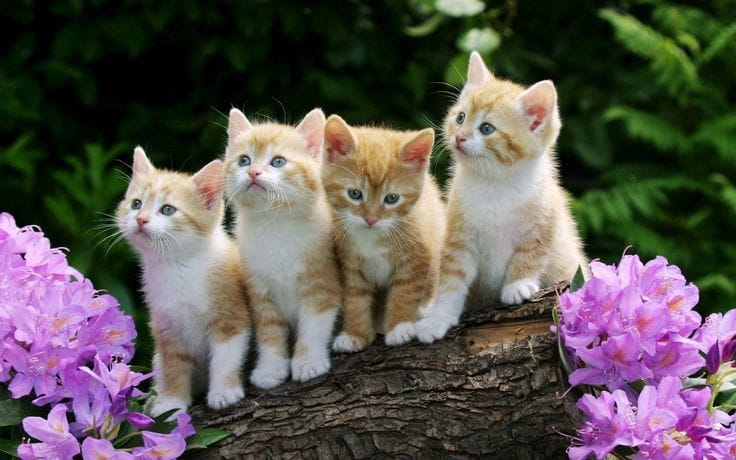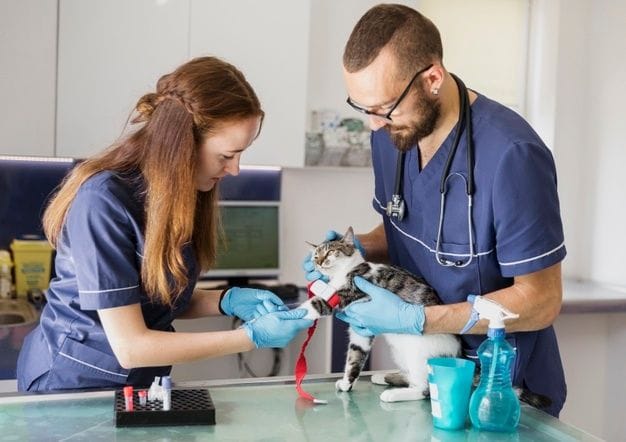
Small animals have become an integral part of many households worldwide, serving as lovable companions and bringing joy to millions. Whether you’re considering adopting a furry friend like a cat or dog or already have one, understanding their needs, health requirements, and the best practices for their care is essential. In this comprehensive guide, we’ll explore everything you need to know about small pet animal, focusing on cute pets, their health, nutrition, and more.
Why Small Animals Make Great Pets?

Small pet animals like cats, dogs, rabbits, hamsters, and guinea pigs are popular for their adorable looks and manageable size. Here’s why they make excellent pets:
1. Easy to Handle
Small pet animals are generally easier to manage than larger pets. Their compact size makes them suitable for smaller homes and apartments.
2. Affectionate Companions
Many animals form strong bonds with their owners, offering companionship and emotional support.
3. Great for Families
Small pet animals are often a good choice for families with children. They teach responsibility while providing endless entertainment.
Popular Small Animals

Let’s dive into some of the most beloved small pet animals and what makes them unique:
1. Cats
- Traits: Independent, curious, and playful.
- Why They’re Great: Cats are low-maintenance pets that adapt well to indoor living.
- Health Tips: Keep their vaccinations up to date and provide regular grooming.
- Nutrition: High-quality cat food with the right balance of protein and fats.
2. Dogs
- Traits: Loyal, social, and energetic.
- Why They’re Great: Dogs are incredibly loyal and versatile, with breeds to suit every lifestyle.
- Health Tips: Regular exercise, vaccinations, and dental care are vital.
- Nutrition: A diet rich in protein and essential nutrients.
3. Rabbits
- Traits: Gentle, quiet, and sociable.
- Why They’re Great: Rabbits are wonderful indoor pets that enjoy human interaction.
- Health Tips: Regular nail trimming and a diet high in fiber.
- Nutrition: Hay, fresh vegetables, and rabbit pellets.
4. Hamsters
- Traits: Small, active, and nocturnal.
- Why They’re Great: Hamsters are easy to care for and require minimal space.
- Health Tips: Ensure they have a clean cage and access to a running wheel for exercise.
- Nutrition: Seeds, grains, and occasional fresh fruits.
5. Guinea Pigs
- Traits: Social, vocal, and friendly.
- Why They’re Great: Guinea pigs thrive on human interaction and are easy to handle.
- Health Tips: Provide plenty of vitamin C to prevent scurvy.
- Nutrition: Fresh vegetables, hay, and guinea pig pellets.
Essential Tips for Small Animals Health

Maintaining your pet’s health is crucial for their happiness and longevity. Here are some general tips:
1. Regular Veterinary Checkups
- Schedule routine visits to the vet to monitor your pet’s health and catch any issues early.
2. Vaccinations
- Ensure your pets are vaccinated against common diseases. Cats and dogs, for example, need vaccines for rabies and distemper.
3. Parasite Prevention
- Protect your pets from fleas, ticks, and worms with appropriate treatments.
4. Grooming
- Regular grooming keeps your pet’s coat healthy and reduces shedding.
5. Dental Care
- Dental health is often overlooked but crucial. Use pet-safe toothbrushes and treats that promote oral hygiene.
Nutrition Guidelines for Small Animals
Proper nutrition is the cornerstone of your pet’s health. Here’s what you need to know:
1. Balanced Diet
- Each species has specific dietary needs. Research your pet’s requirements to ensure they receive a balanced diet.
2. Fresh Water
- Always provide clean, fresh water for your pets.
3. Avoid Human Foods
- Many human foods are toxic to small pet animals. For example, chocolate and onions are harmful to dogs and cats.
4. Portion Control
- Overfeeding can lead to obesity. Stick to recommended serving sizes.
5. Special Treats
- Offer treats in moderation. Opt for pet-safe options like catnip for cats or chew sticks for rabbits.
Enrichment and Exercise for small animals
Animals thrive when they are mentally and physically stimulated. Here’s how you can provide enrichment:
1. Toys
- Provide a variety of toys to keep your pets engaged. Puzzle feeders, chew toys, and balls are great options.
2. Playtime
- Dedicate time each day to interact with your pets. Cats enjoy laser pointers, while dogs love fetch.
3. Space to Explore
- Ensure your pets have enough room to move and explore, whether it’s a spacious cage or an open area in your home.
4. Training
- Training is not just for dogs. Cats can learn tricks, and rabbits can be litter-trained.
Common Health Issues in Small Animals
Understanding common health problems can help you take preventive measures:
1. Cats
- Issues: Hairballs, urinary tract infections, obesity.
- Prevention: Regular grooming, a healthy diet, and access to clean water.
2. Dogs
- Issues: Arthritis, dental disease, ear infections.
- Prevention: Regular checkups, exercise, and good hygiene.
3. Rabbits
- Issues: Overgrown teeth, gastrointestinal stasis.
- Prevention: A diet rich in hay and regular dental checkups.
4. Hamsters
- Issues: Wet tail, respiratory infections.
- Prevention: A clean cage and a stress-free environment.
5. Guinea Pigs
- Issues: Vitamin C deficiency, bumblefoot.
- Prevention: Provide a diet high in vitamin C and soft bedding.
Adopting a Small Animals
If you’re considering adding a small animal to your family, here are a few helpful tips to get you started:
1. Research
- Learn about the species you’re interested in to ensure it’s a good fit for your lifestyle.
2. Adoption
- Consider adopting from shelters or rescue organizations. Many animals are looking for loving homes.
3. Preparation
- Prepare your home with the necessary supplies, such as bedding, food, and toys.
4. Patience
- Give your new pet time to adjust to their new environment. Building trust takes time.
Caring for Small Animals:

Small pets can make wonderful, low-maintenance companions for families, individuals, or anyone looking for companionship in a manageable size. In fact, they’re often ideal for those with limited space or time. Whether you have a hamster, guinea pig, rabbit, or another small creature, providing the right care, environment, and attention is crucial to ensuring they lead a happy, healthy life.
In this guide, we’ll cover essential tips for caring for your small animal, including the proper habitat, their diet, grooming needs, and more, all aimed at helping them thrive.
1. Choosing the Right Small Animal for You
Before bringing a small animal into your home, it’s important to consider which type of pet best suits your lifestyle. Here are some common small pets and what you should know about each:
- For starters, hamsters are great for beginners; they are nocturnal, small, and require minimal space.
- In contrast, guinea pigs are sociable creatures that love companionship, making them ideal for families. They need more space and attention to thrive.
- Similarly, rabbits are playful and social, highly affectionate, and need a larger living area, along with daily interaction.
- Gerbils and Mice: Smaller than hamsters, these creatures are active and thrive in pairs or small groups.
- Ferrets: Curious and energetic, ferrets require regular stimulation and time outside their cage.
2. Creating a Comfortable Habitat
Each type of small animal has its own needs when it comes to housing. The right environment is essential for their well-being.
- For example, hamsters and gerbils do well in a well-ventilated cage with bedding, tunnels, and chew toys to keep them entertained and comfortable. Additionally, hamsters need a wheel for exercise and a space to hide for privacy.
- On the other hand, guinea pigs and rabbits require larger cages or enclosures that allow for movement, play, and a safe sleeping area. In fact, consider a multi-level cage for more space.
- Meanwhile, ferrets thrive in a tall, secure cage with platforms for climbing, and they also need playtime outside the cage for exercise.
Be sure to place the habitat in a quiet, temperature-controlled area, away from direct sunlight and drafts.
3. Nutrition for Small Animals
A proper diet is one of the most important factors in maintaining the health of small animals. Each pet has specific dietary needs:
- Hamsters: A balanced hamster pellet, along with fresh vegetables (carrots, cucumbers) and occasional fruits, will keep them healthy.
- Guinea Pigs: These pets need fresh hay, vegetables (like leafy greens), and vitamin C supplements, as they can’t produce it naturally.
- Rabbits: A diet rich in hay (especially timothy hay), leafy vegetables, and a small amount of rabbit pellets is recommended.
- Gerbils and Mice: A small pet mix of seeds and pellets, along with fresh veggies, will provide the right balance of nutrients.
- Ferrets: A protein-rich diet with high-quality ferret food (preferably meat-based) and occasional treats will meet their needs.
Always provide fresh water daily and avoid sugary or processed foods, which can be harmful.
4. Grooming and Hygiene
Maintaining good hygiene is essential for your pet’s health. Regular grooming not only keeps your small animal looking great but also helps prevent health problems:
- Hamsters, Gerbils, and Mice: These animals generally groom themselves, but you should clean their cages regularly and check for signs of fur matting.
- Guinea Pigs and Rabbits: They need regular brushing to keep their coats healthy and prevent hairballs. Rabbits also need their nails trimmed regularly.
- Ferrets: Ferrets don’t require much grooming, but regular baths (every few months) and nail trimming are important for keeping them clean and comfortable.
To maintain their health, ensure their living area is kept clean by removing waste daily and replacing bedding as needed.
5. Enrichment and Playtime
Table of Contents
Small pets need mental and physical stimulation to stay happy. Here are some ideas for enriching your pet’s environment:
- Toys: Many small pets enjoy toys they can chew on, climb, or burrow into. Things like tunnels, wheels, and chew blocks are great choices.
- Exercise: Make sure your pet gets daily exercise. For hamsters, a wheel works well, while rabbits and guinea pigs enjoy exploring larger areas or being allowed time outside their cage.
- For instance, most small animals, like guinea pigs and rabbits, thrive with regular social interaction. Therefore, spend time talking to them, handling them gently, and offering them attention.
6. Regular Veterinary Care for small animals
Similar to all pets, small pets require regular check-ups with a veterinarian. To ensure they receive the proper care, find a vet who specializes in small pets. Regular health checkups help catch any potential issues early and maintain your pet’s overall well-being.
Conclusion
Small pet animals bring immense joy and companionship to our lives. Whether you’re a proud pet parent or considering adopting one, understanding their health, nutrition, and enrichment needs ensures they lead happy, healthy lives. By providing love, care, and proper attention, your cute pets will thrive and, as a result, remain your loyal companions for years to come.
Final Thoughts for small animals
Caring for small animals can be incredibly rewarding. In addition, with the right knowledge and commitment, you can create a safe, stimulating, and loving environment that not only promotes well-being but also allows your small pet to live a long, happy life. Whether you’re a first-time pet owner or an experienced enthusiast, following these basic guidelines will help you ensure your pet stays healthy and content.
What are some examples of small animals that make good pets?
- Small animals such as hamsters, guinea pigs, rabbits, gerbils, and mice are popular choices for pets. Each of these animals has unique care requirements, making them suitable for different living situations and lifestyles.
How do I care for small animals like hamsters or guinea pigs?
- Proper care for small animals includes providing a safe and comfortable habitat, a balanced diet, regular cleaning of their cages, and ensuring they have enough social interaction and exercise. Each species has specific needs, so it’s important to research individual care guides.
Can small animals live in the same cage together?
- Some small animals, like guinea pigs and certain types of rabbits, can live together in harmony if introduced properly, but others, such as hamsters and gerbils, are solitary and should not be housed together. Always research the species to ensure compatibility before introducing them.
What do small animals eat?
- The diet of small animals varies depending on the species. For example, hamsters enjoy seeds, fruits, and vegetables, while guinea pigs need hay, fresh veggies, and pellets rich in Vitamin C. It’s important to provide a varied diet tailored to each animal’s nutritional needs.
How long do small animals typically live?
- The lifespan of small animals varies depending on the species. For example, hamsters usually live for 2 to 3 years, while guinea pigs can live 4 to 6 years. Rabbits have a lifespan of 8 to 12 years, and gerbils typically live for 2 to 4 years.



